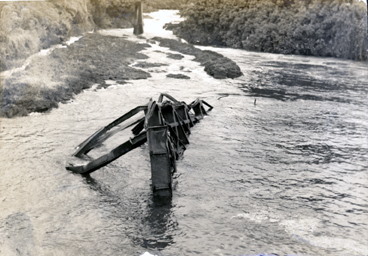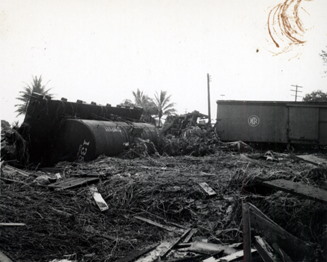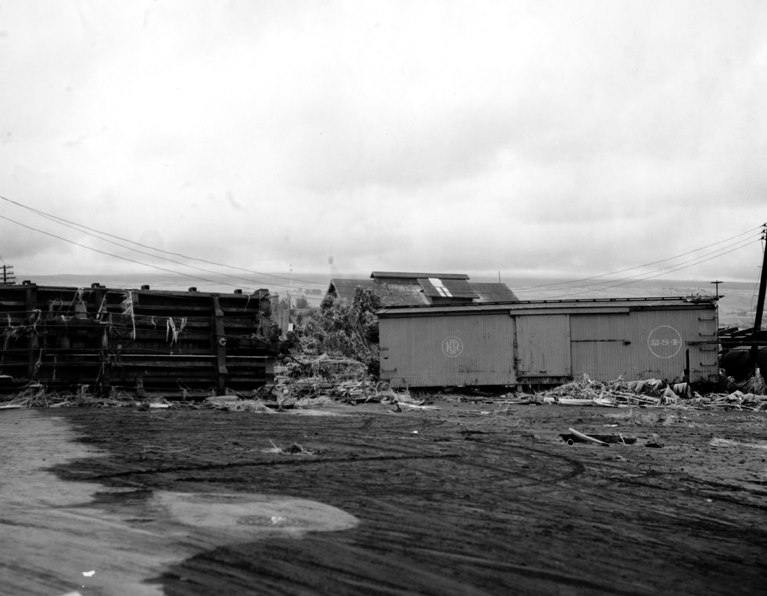Engine 121
The Homecoming of Engine 121: A Tale of Return and Remembrance
By Ethan Collyer, PTM Archive
In the annals of Hilo’s history lies a tragic yet compelling tale—one that unfolds amidst the roar of crashing waves and the relentless march of time.
It is the story of Engine 121, a locomotive that once thundered along the rails with purpose and determination, only to meet its watery fate at the hands of the April Fools Day tsunami of 1946.
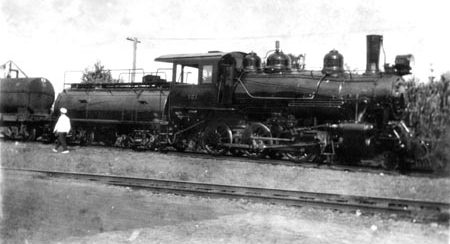
On that fateful morning, not long after the first light of dawn pierced the horizon, Engine 121 embarked on its routine journey from the Hilo Iron Works, laden with a cargo of lumber, oil, and general freight. The rhythmic chug of its engines was a testament to the industrious spirit of Hilo’s bustling port.
As the sun climbed higher in the sky, casting its golden glow upon tranquil waters, the town awoke to the gentle sounds of the ocean. Yet, disaster would strike. The tsunami, a towering wall of water propelled by unfathomable force, descended upon Hilo with cataclysmic fury in the early hours of the morning. There was no warning sent out.
An engineer, conductor, fireman and two brakemen were on board. While they were crossing the area in front of Hilo Bay, the fireman looked out and saw a huge wave engulf the engine. In a desperate bid for survival the train crew fought to outrun the encroaching deluge. The engineer blew the whistle of the train over and over, in an effort to alert nearby people. Against the awesome power of nature, the warning efforts proved futile. With a deafening roar from the ocean, the tsunami engulfed Engine 121 and its boxcars, swallowing it whole beneath a torrent of water and debris causing sounds of “a thousands booms.”
Caught in the direct path of the advancing wave, Engine 121 and its crew stood little chance against the overwhelming might of nature’s wrath. One brakeman disappeared under a pile of lumber, the other was hanging onto a building pipe. The conductor was left floating in the bay, but was later beached in front of the Hatada Bakery on Kukuau Street next to his caboose. The fireman and engineer safely made their way to the Coco-Cola building. Despite the tragedy, tales of survival emerged, and all 5 members of the train crew miraculously cheated death’s grasp, emerging battered but alive from the watery wreckage. The once mighty locomotive succumbed to the relentless onslaught of the sea.
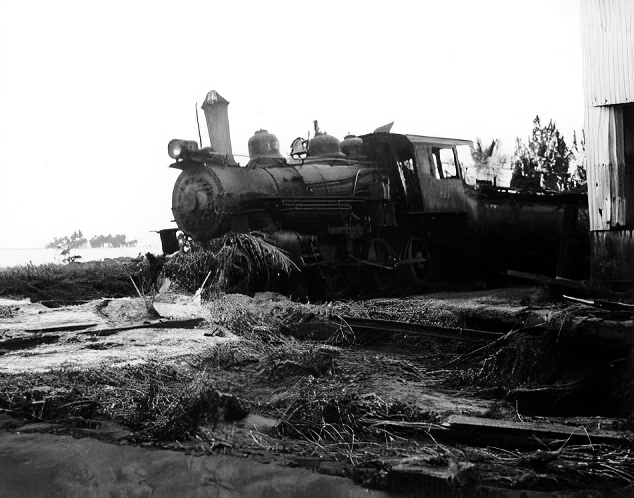
In the aftermath of the tsunami’s devastating onslaught, Hilo found itself forever altered. Lives were lost, homes destroyed, and dreams shattered in the blink of an eye. For decades, the memory of Engine 121 and the harrowing events of that fateful day lingered in the collective memories of Hilo’s residents—a poignant reminder of the fragility of life and the awesome power of nature
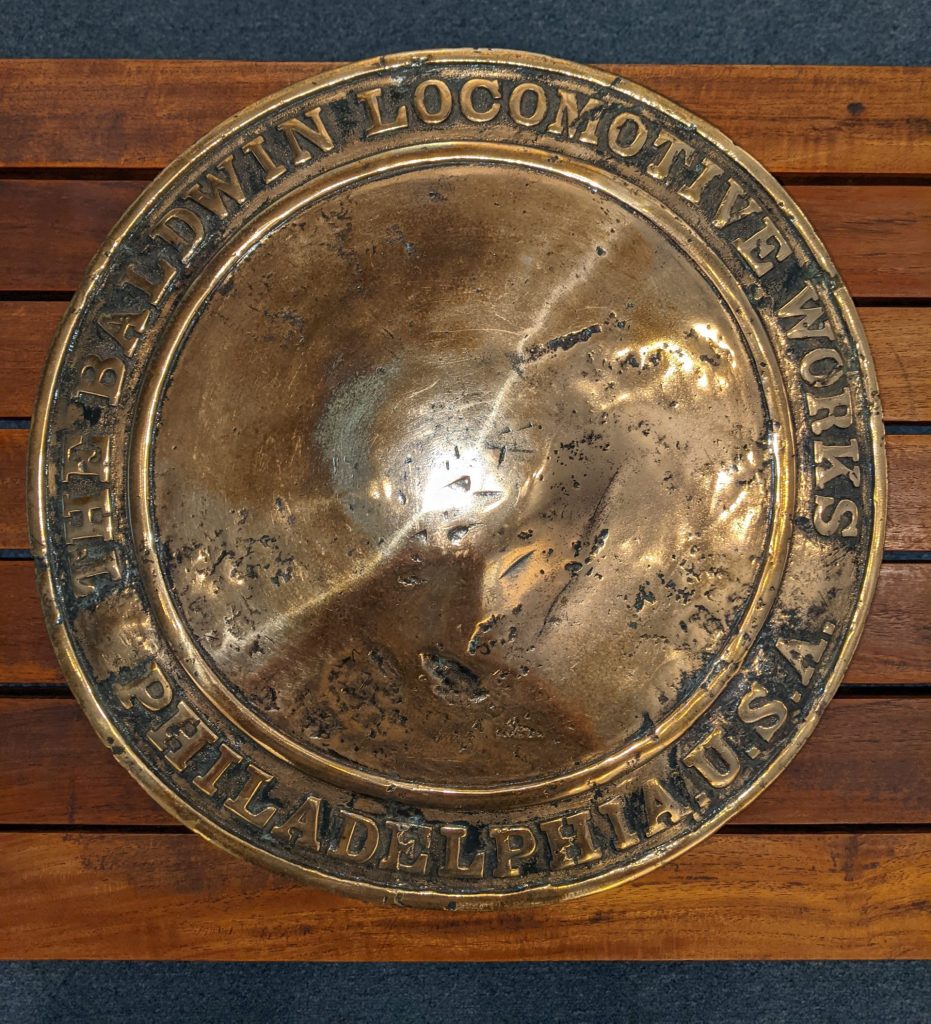
The backstory of this new exhibit piece has a feeling of loss and longing, until a donation came in from Martha Adkins in California. As the recipient of a humble brass plate, Martha unwittingly became a keeper of Hilo’s past, her kitchen wall adorned with a relic of untold stories and desperate survival. Little did she know, this seemingly ordinary artifact bore witness to a pivotal moment in Hilo’s history—a silent sentinel to the enduring spirit of Engine 121 and the souls who once traversed its iron veins. This brass plate is presumed to be one of Engine #121’s reflector plates. The Pacific Tsunami Museum has welcomed this awesome donation and will have it displayed in our Story of Hilo Exhibit!
Now, as the wheels of fate turn once more, the spirit of Engine 121 finds its way back home—a testament to the resilience of a community united in remembrance and reconciliation. As we celebrate this momentous occasion, let us honor the memory of Engine 121 and the lives it touched, ensuring that their legacy endures for generations to come.
See below for other photos of the train and the railroad after the 1946 April Fools Day Tsunami.
4/24/2024
